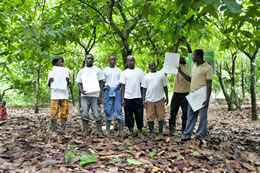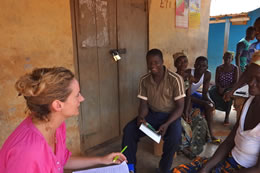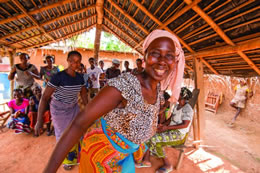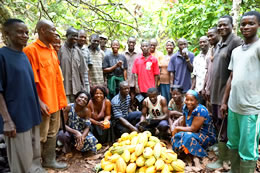Natural Resource Management
Agriculture and Rural Development
Public Policy Review and Analysis
Communications, Education & Advocacy
Climate Change and Sustainability
Research & Monitoring
Our Core Flagship Programs
BIODIVERSITY NET GAIN INTERVENTION (BIODIVERSITY OFFSET)
CONSERVATION ALLIANCE INTERNATIONAL (CA)
Conservation for Human Development
Conservation Alliance International (CA) is a not-for-profit, non-governmental natural resource management organization. Conservation Alliance International was established in 2008 and took over the activities of Conservation International, Ghana, when the latter closed its activities in Ghana under a new regional arrangement. CA’s multidisciplinary orientation provides a strong platform for addressing natural resource management issues within the Upper Guinea Hotspot. CA is currently an active member of the International Partnership for Satoyama Initiative (IPSI), Japan, the African Forest Forum, and the Cocoa-Forest Initiative in Ghana. CA chairs the National Biodiversity Offset Committee and is a ranking member of both the National Biosafety Committee and the National Biodiversity Steering Committee.
Organizational Structure
The governance structure consists of a 7-member Board of Directors and a secretary, 5 Country Directors and a team of technical staff. CA’s operation is ably supported by a finance and administration department that oversee judicious use of resources in respect of best financial practices. CA’s accounts are audited annually by an accredited auditing firm (TGS PenielStephens) and the audit report is presented to the Board for decision. CA’s local visibility is also enhanced by the presence of multiple field offices across the country under the supervision of Landscape Managers.
BE PART OF OUR SUCCESS STORIES
ASSOCIATIONS OF CONSERVATION ALLIANCE.

Cocoa Youth
Association (CYA)
Over 60 percent of cocoa farmers in West Africa are above 60 years. This situation has dire consequence for the cocoa industry particularly when there is little or no incentive for the youth to take cocoa production as a career.....

Cocoa Watch
(CW)
Cocoa Watch is a platform for organizations working on cocoa to contribute positively to the development and the sustainability of the cocoa industry and welfare of the small holder producers in Africa

Conservation Women
Association (CWA)
Conservation Women Association is made up of women involved in small enterprises such as traders, fishmongers, food crop sellers, bakers, farmers, dressmakers etc.

Conservation Cocoa
Association (CCA)
In 2005, a number of farmers from 11 communities ( fringing the Kakum National Park after undergoing a cocoa agro forestry training program organized by Conservation Alliance decided to come together as a group.
BECOME A VOLUNTEER
CA has collaborated with several renowned Universities around the world in conducting Researches, Rapid Biological Assessments, Project Monitoring and Evaluation, Community Engagements with farmers among others.
WORKSHOPS OF CONSERVATION ALLIANCE
Our interventions around #natural resources, #environment and #climate change, have provided opportunities for #women and #girls to take on non-traditional roles in relation to conservation and sustainable use of biodiversity.